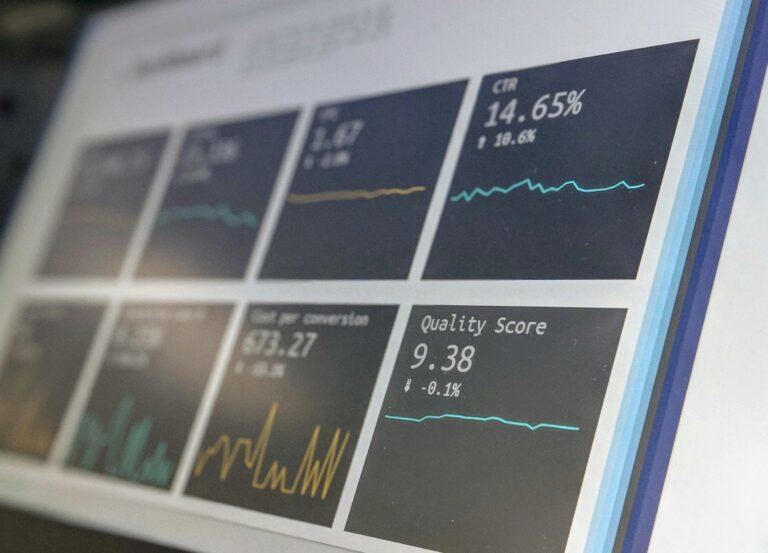Measuring Success: How to Use Digital Analytics to Track Performance
Whether you’re managing a website, running an e-commerce store, or overseeing social media campaigns, digital analytics provide valuable insights into user behavior, engagement, and overall performance. Leveraging these insights helps businesses refine their strategies, improve customer experience, and ultimately drive growth. But how do you effectively use digital analytics to track performance? Read on to find out.
Understanding the Importance of Digital Analytics
Digital analytics refers to the collection, measurement, and analysis of data from digital platforms, such as websites, social media, and apps. The right digital analytics platform offers a centralized system for tracking and interpreting this data, giving businesses a clear view of their performance across different channels. Companies can make data-driven decisions, identifying what’s working and where improvements are needed.
The insights gathered through analytics allow businesses to track key metrics like website traffic, conversion rates, bounce rates, and user engagement. These metrics provide a clear picture of how users interact with your digital platforms and how well your campaigns are performing. Analytics also help pinpoint areas that may be underperforming, enabling you to make targeted adjustments and enhance overall efficiency.
Set Clear Goals and Key Performance Indicators
Before diving into the data, define your goals and key performance indicators (KPIs). What does success look like for your business? If you aim to increase sales, improve user retention, or grow your social media following, your goals should be specific, measurable, and aligned with your overall business strategy. For each goal, you’ll need to identify KPIs that can be tracked using digital analytics.
If your goal is to boost website conversions, you might track conversion rate, average time on site, and cart abandonment rate. Alternatively, if you’re focused on increasing brand awareness, website traffic, social media engagement, and reach would be more relevant. Once you have clearly defined KPIs, you can focus on the most important data points that directly align with your business objectives.
Monitor Website Traffic and User Behavior
Monitoring traffic gives you insight into how many users are visiting your site, where they are coming from, and how they navigate through your pages. By analyzing traffic sources—organic search, paid ads, social media, or referrals—you can determine which channels are driving the most visitors and allocate resources accordingly.
Beyond traffic volume, user behavior data helps you understand how visitors interact with your site. Average session duration, pages per session, and bounce rate offer valuable insights into the user experience. A high bounce rate might indicate that visitors are not finding what they’re looking for or that the page is not optimized for engagement. Analyzing this data helps identify potential issues with your site’s design or content, allowing you to improve user experience and increase retention.
Leverage A/B Testing
A/B testing, also known as split testing, is an essential technique for optimizing performance based on data-driven insights. When you create two or more versions of a webpage, ad, or email, you can test which variation performs better with your audience. This method allows you to make incremental improvements to key elements of your campaigns, such as headlines, images, or call-to-action buttons.
If you’re trying to increase the click-through rate on an email campaign, you could run an A/B test with two different subject lines to see which one generates more opens. When you continuously test and refine your strategies, you can make data-backed decisions that result in improved results.
Measure Social Media Performance
Social media is a powerful channel for building brand awareness, engaging with customers, and driving traffic to your website. Digital analytics tools can track important social media metrics such as likes, shares, comments, and followers. These metrics help you gauge the effectiveness of your social media campaigns and understand how well your content resonates with your audience.
More advanced social media analytics can provide insights into audience demographics, engagement trends, and the performance of specific posts or ads. Now, you can identify which types of content drive the most engagement and adjust your social media strategy accordingly. Tracking referral traffic from social media to your website helps measure the impact of your social media efforts on overall business goals.
Track Mobile Performance
Mobile optimization is now a key factor in both user experience and search engine rankings. Digital analytics can track mobile-specific metrics, including but not limited to mobile bounce rates, time on site, and conversions from mobile devices.
When you analyze mobile performance, you can identify potential issues like slow load times or poor navigation, which may hinder mobile users. Make sure that your site is fully optimized for mobile for higher engagement and better search rankings, as Google’s mobile-first indexing prioritizes mobile-friendly websites.
Monitor ROI and Campaign Effectiveness
For businesses running digital marketing campaigns, measuring the return on investment (ROI) is essential for determining the effectiveness of those efforts. Digital platforms allow you to track campaign-specific metrics, such as cost per acquisition (CPA), cost per click (CPC), and revenue generated from specific campaigns.
Compare the costs of your campaigns to the revenue they generate, and you can assess which strategies deliver the best value. This data also helps you make informed decisions about where to allocate your marketing budget. If a paid search campaign is generating a high CPA compared to other channels, you might decide to shift resources toward more cost-effective strategies like organic search or social media.
Refine Strategies Based on Data
Among the most valuable aspects of digital analytics is the ability to continuously refine your strategies based on the data you collect. Instead of making assumptions about what works, you can make informed decisions backed by real-world data. Regularly reviewing your performance metrics allows you to spot trends, identify areas for improvement, and adjust your strategies for better results.
Once you choose to adopt a data-driven approach to digital marketing, you can optimize your website, content, and campaigns to better serve your audience and achieve your business goals. Digital analytics provides the tools and insights needed to track your progress, fine-tune your efforts, and ultimately drive success.
Using digital analytics is essential for tracking performance and making informed decisions that enhance your digital marketing efforts. Whether you’re monitoring website traffic, conversion rates, or social media engagement, a comprehensive platform can provide the insights you need to optimize your strategies and achieve better results. By setting clear goals, continuously analyzing data, and refining your approach, you can ensure long-term success in the competitive digital landscape.






